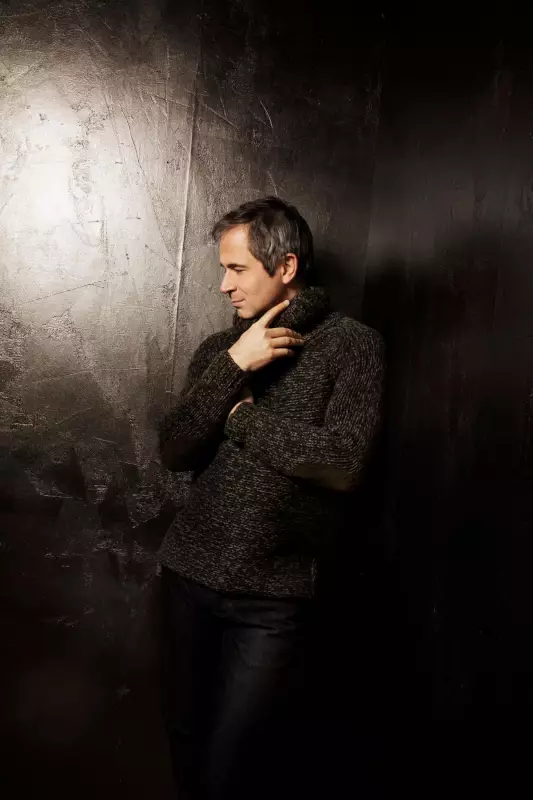
In an evening that transcended mere performance, Polish-Hungarian virtuoso Piotr Anderszewski captivated a Perth audience with a profound musical journey through Brahms, Bach and Beethoven at the University of Western Australia's Winthrop Hall. The Friday night recital, presented by Musica Viva, demonstrated why Anderszewski remains one of the most compelling pianists of our generation.
A Journey Through Brahms' Final Years
From the moment his fingers first touched the Kawai keyboard, Anderszewski established an immediate connection with both instrument and audience. The diffident pianist greeted attendees with a characteristically shy smile before plunging into the emotional depths of Brahms' late solo piano works from the 1890s. The program opened with selections from Four Pieces for Piano (Opus 119), beginning with what could have served as an epilogue to Brahms' career - the composer would pass away just four years after their composition.
The third piece of the Opus 119 suite dramatically broke the reverie with playful phrases that built energy through charm rather than theatricality. Anderszewski guided listeners through this intimate repertoire with gentle authority, progressing to Six Pieces for Piano (Opus 118), dedicated to Clara Schumann. These works served as paeans to lost love, filled with regret yet simultaneously summoning hope, particularly in the second piece of the suite, Intermezzo Andante teneramente.
Selections from Seven Fantasies (Opus 116) followed, bringing the fresh promise reminiscent of pop tunes - concise yet passionately engaging, especially the Capriccio Allegro passionate. A subsequent Adagio cooled the atmosphere to meditative stillness, presenting what felt like a ballad rather than a dramatic statement. The final piece of this segment, Andante con grazia ed intimissimo sentimento, moved with the gracious sweep of a slow tango, perfectly capturing the fin de siècle spirit of Brahms' declining years.
Bach's Precision and Beethoven's Innovation
Following the interval, the musical landscape transformed dramatically as Anderszewski broached Bach's Well-Tempered Clavier with a brightly pealing carillon of counterpoint. The pianist maintained his inward focus yet appeared completely relaxed, allowing the metronomic regularity of Bach's compositions to speak for themselves while still injecting subtle flair and variation to refresh these hallowed passages.
In a curious artistic decision, Anderszewski maintained radio silence throughout the performance, never breaching the fourth wall to address the audience. He rolled without acknowledgement into Beethoven's Sonata No.31 in A-flat major, just as he had played the Brahms works end-to-end without interruption. This created a statement-through-silence, as if musical continuity represented an end in itself - inwardly satisfying though somewhat lacking in direct engagement.
The programming choice to follow Bach's fugues with Beethoven's own fugal conclusion to Sonata No.31 created an interesting continuity, though it somewhat blurred the distinct charms separating the Baroque and Romantic eras. The evening concluded with an encore of Bartok's Three Hungarian Folk Songs, bringing the musical journey full circle back to Anderszewski's own cultural heritage.
A Master at the Peak of His Art
Throughout the performance, Anderszewski demonstrated why he's considered among the elite interpreters of classical piano repertoire. His approach to Brahms' Three Intermezzi (Opus 117) - described in Tonya Lemoh's program notes as "Lullabies for my sorrows" - showcased his particular affinity for ambience and emotional nuance. The drama consistently faded to the tenderest of conclusions under his careful guidance.
Speculation often surrounds Brahms' inspiration during this final creative period - whether he had decided to stop composing or found a fortuitous second wind. In Anderszewski's reading, however, there was no sense of resignation. This was particularly evident in the endpiece to Opus 119, a Rhapsody Allegro risoluto announced in dramatically tolling chords that renewed the room's energy before breaking to whimsy and light relief, then returning to strident declamation.
The final "lullaby" from Opus 117 emerged as both rueful and sweet under Anderszewski's touch, while the finale to Opus 118 lingered longingly in tribute to Clara Schumann, capturing a listless hunger in its broadly plangent cadence. The November 18 performance at UWA's Winthrop Hall reaffirmed Musica Viva's commitment to bringing world-class artists to Australian audiences, and Anderszewski's recital will undoubtedly linger in the memories of Perth music lovers for years to come.





